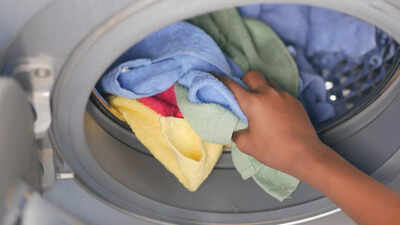Maintaining daily hygiene is vital for overall health, but towel hygiene is often overlooked. Many people assume that because towels are used on clean skin, they don’t need frequent washing. This misconception, however, can result in the buildup of bacteria, fungi, and other harmful microorganisms, creating a potential health risk. Towels absorb dead skin cells, body oils, and traces of personal care products, providing an ideal environment for microbial growth—especially in warm, humid bathrooms. Understanding the correct washing frequency and adopting proper maintenance practices, such as thorough drying, hot water washing, and regular replacement, is essential. Prioritising towel hygiene not only protects skin health but also contributes to a cleaner, safer living environment for individuals and families.The study titled “Analysis of biofilm and bacterial communities in the towel environment with daily use” investigates the microbial dynamics on towels over a six-month period of regular use. The research, published in Nature – Scientific Reports, reveals that towels develop biofilms composed of polysaccharides, proteins, and nucleic acids, leading to odour and dullness. Notably, the microbial communities on towels differ significantly from those on human skin and clothing. The study highlights the importance of considering textile fibre material, structure, and usage patterns to manage bacterial communities effectively.
Surprising health risks of using unwashed towels
Towels might appear harmless, but they can quickly become breeding grounds for microorganisms. Each use leaves behind:
- Dead skin cells
- Natural body oils
- Residual lotions, creams, or personal care products
This combination creates a warm, damp environment that is ideal for bacterial and fungal growth. Bathrooms, particularly those with poor ventilation or high humidity, exacerbate the problem.Philip Tierno, microbiologist and professor at New York University, notes that towels can start harboring harmful bacteria after just two or three uses. If neglected for long periods, they can contribute to skin conditions such as rashes, irritations, and even staph infections.People with sensitive skin, acne, or allergies need to be especially cautious. Even devices like inhalers, which may introduce bacteria to the face, increase the importance of using clean towels regularly.
How often should towels be washed? Expert recommendations
Many people believe that washing towels weekly is sufficient. However, experts recommend a more frequent schedule to minimize microbial buildup and maintain hygiene. The frequency depends on towel type, usage, and personal habits:Recommended Towel Washing Frequency:
Factors such as bathroom humidity, climate, and individual health conditions may require even more frequent washing. In humid environments, bacteria and mold grow faster, making it crucial to follow these guidelines strictly.
Best practices for maintaining hygienic towels
Washing frequency alone is not enough. Proper towel care ensures they remain clean, absorbent, and safe for use.Dry towels thoroughly between uses: Always hang towels in well-ventilated areas. If bathrooms are humid, consider drying towels outside or in a space with good airflow. Damp towels promote bacterial growth.Wash towels at high temperatures: Hot water washing at around 60°C (140°F) effectively eliminates most bacteria, fungi, and viruses that may accumulate on towels.Replace towels regularly: Even with proper care, towels lose absorbency and become less hygienic over time. Experts suggest replacing towels every two years, or sooner if fibers are worn or fraying.Avoid sharing towels: Sharing towels increases the risk of cross-contamination. Each household member should have their own towel for personal use.Be mindful of fabric softeners: Fabric softeners make towels feel softer but can reduce absorbency. Natural alternatives, like white vinegar, are safer for maintaining towel performance.
Why rethinking towel hygiene is important
The misconception that towels only need occasional washing stems from the belief that they contact already-clean skin. However, the reality is that human skin constantly sheds dead cells and oils. Each towel use leaves behind a layer of organic matter that fuels bacterial and fungal growth.Scientific research supports this concern. A study in the Journal of Clinical Microbiology found that bacteria on damp towels can double in just 20 minutes, highlighting the rapidity with which unhygienic conditions can develop.By increasing washing frequency and adopting proper care habits, we reduce exposure to harmful microorganisms, promote better skin health, and prevent potential infections.











